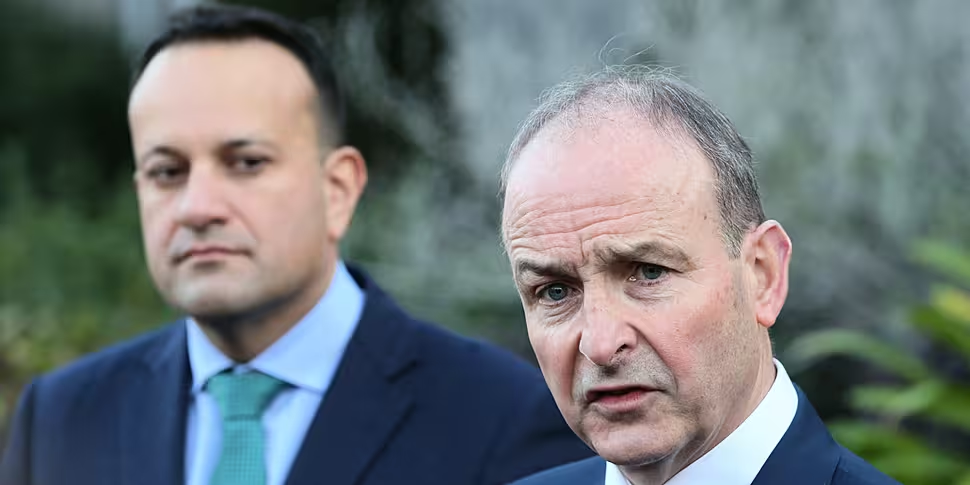2024 could see Leo Varadkar and Micheál Martin ditched as party leaders, Ivan Yates has predicted.
Both men have led their parties for a number of years but there have been mutterings of discontent from their TDs.
An election in 2024 is widely expected and if the coalition is not re-elected, it could trigger resignations or votes of confidence in both men.
“I think for all the party leaders, this time next year, we may have a change of faces across the board,” Mr Yates told The Pat Kenny Show.
“We’re looking at seismic changes both within and between the parties.
“If you were to ask me now who would lead Fianna Fáil next, I would mention [Finance Minister] Michael McGrath as by far the most likely leader.
“I would throw in [Housing Minister] Darragh O’Brien [as he hails from] Dublin, [there’s a] bit of the Bertie about him, [he would be] pugnacious and carry the battle to Sinn Féin.
“Perhaps if they skip a generation, Jack Chambers.”
Fine Gael
For Fine Gael, Mr Yates predicted Higher Education Minister Simon Harris would be the candidate most likely to replace Leo Varadkar as party leader.
“I think that he wants it badly and he decided not to go after Leo 18 months ago and to bide his time,” Mr Yates said.
“I think he’s the coming force within the party and if Fine Gael have 25 seats, it’s not an enviable job that 'long hard rubber chicken road', as PJ Mara said, back to power.”
Labour
For the Labour Party, which is currently languishing in the polls, Mr Yates said there is a real risk the party could win no seats.
“To get a seat in any constituency, the rule of thumb is about 16%, one in six votes,” he said.
“If you’re under that threshold, you’re actually not hanging around long enough at the count to succeed.
“I think Sinn Féin could eat their lunch, I think they’ve lost the working class vote.”
Mr Yates also noted a number of prominent TDs have announced their retirement and their voters could well switch their support to another party.
“Brendan Howlin had a safe Labour seat,” he said.
“As did Seamus Patterson, as did Dick Spring and all this.
“When the main person steps down, they tended to lose the seat and that’s another problem that Fine Gael face.
“You take Donegal, Joe McHugh, in Kerry Brendan Griffin, Charlie Flanagan, Fergus O’Dowd, Richard Bruton.
“A lot of the votes are actually half personality, half party… Once you invite change, it’s very hard to get the shiny new penny over the line.”
Election date
In theory, the Government could hold off calling an election until early 2025 but Mr Yates said people are often in a bad mood in winter when the weather is miserable and there are Christmas bills to pay.
Instead, a lot of Fine Gael members have told him they would prefer to go to the polls in the spring or summer.
“I think the Fine Gael top brass believe that either a coincidental election on the first Friday in June or in March would suit them best,” he said.
Sinn Féin continue to poll well and Mr Yates said denting their momentum will be Fine Gael’s top priority.
“[Sinn Féin] did really badly in the 2019 local elections at 9%,” he said.
“So, say they got 27%, they could go from 80 councillors to 240.
“They would have poll topping councillors which would be plump turkeys to vote for in terms of an autumn election.
“With the dual mandate, councillor wannabes can’t run for the Dáil; if you do it at the same time, Sinn Féin could have a repeat problem of a shortage of candidates.”
Elections to the Dáil are held at least every five years and Irish and British citizens who are over the age of 18 and ordinarily resident in the State are eligible to vote.
Main image: Leo Varadkar and Micheál Martin. Picture by: Sasko Lazarov/RollingNews.ie









